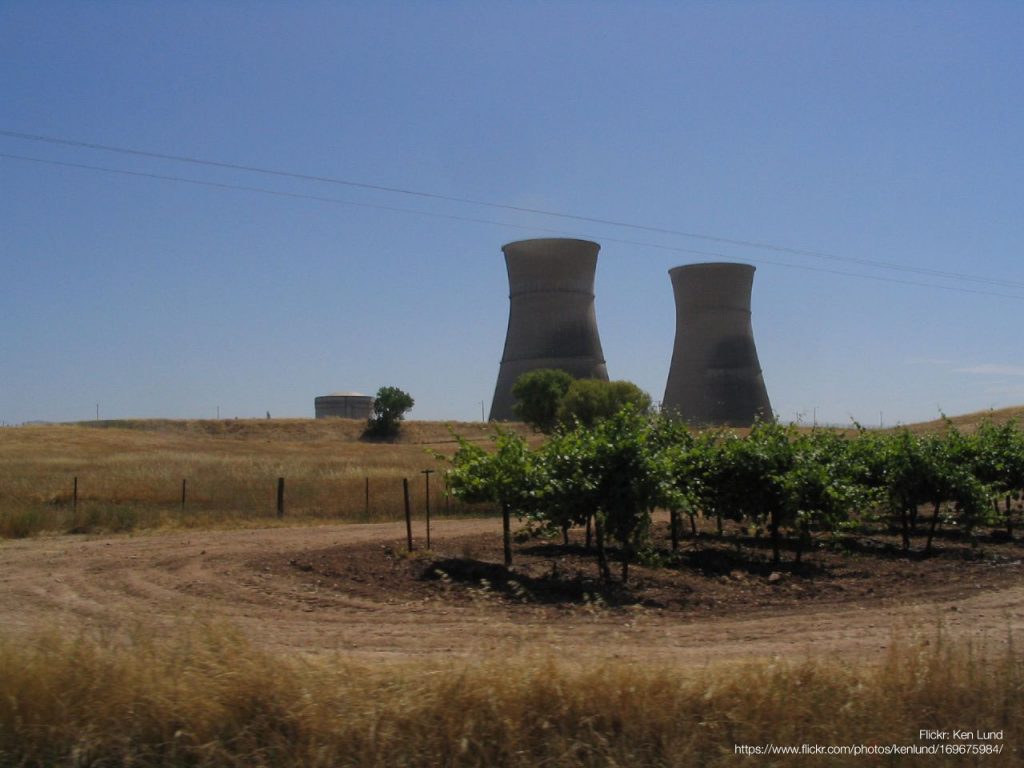
News
By Smart Growth America, October 30, 2020

Smart Growth America (SGA), the leading advocate for people who want to live and work in great neighborhoods, is pleased to announce the Nuclear Closure Communities Technical Assistance program.
Has a nuclear power plant been an economic driver in your local community? Nearly 20 nuclear power sites have been or are currently being decommissioned. Between five and ten additional plants could close within the next five years. The small or rural communities that host these powerful economic engines face incredible challenges in the years to come. This new Nuclear Closure Communities Technical Assistance program is designed to help these communities better prepare and plan for a post-nuclear power plant future. SGA has partnered with the Nuclear Decommissioning Collaborative, the Center for Creative Land Recycling, and the NADO Research Foundation to provide guidance and analysis, offer a set of tools, and build a supportive community of practice to better position the municipalities and regions bracing for this dislocation.
This work is supported by the U.S. Economic Development Administration’s Research & National Technical Assistance program, which has made $13.5 million available to support communities making the difficult transition when a nuclear plant closes.
Beyond the 27 sites currently being decommissioned or scheduled for closure, the majority of the nuclear power plants in the U.S. may close in the next few decades. While the local challenges associated with closure are immense, dependence on a single economic engine—a coal mine, a steel factory, a military base—is not a new phenomenon in smaller communities. Their challenges are certainly unique, but much of what they need is similar: a strategy for long-term economic and fiscal sustainability, and a near-term plan for effectively deploying any relief they can get from the federal or state government.
It takes a considerable amount of work and capacity to be able to identify, apply, and effectively deploy federal resources. Systematic planning, stakeholder engagement, and other measures are sorely needed to better understand, integrate, and leverage plant closure and decommissioning into a force for economic growth and community revitalization. There is also an opportunity to leverage other local assets—natural features, historic sites, legacy buildings, skills and traditions—to create more resilient and prosperous communities.
This team can assist communities with that process. Learn more in an informational session on November 12 at 2 p.m. ET.
Interested in getting assistance or have a question? Contact us here: smartgrowthamerica.org/work-with-us/workshop-types/nuclear-closure-assistance/
This effort utilizes Federal funds under award ED20HDQ3030068 from the U.S. Economic Development Administration (EDA), U.S. Department of Commerce. The statements, findings, conclusions, and recommendations are those of the project team and do not necessarily reflect the views of EDA or the U.S. Department of Commerce.
###
About Smart Growth America
Smart Growth America envisions a country where no matter where you live, or who you are, you can enjoy living in a place that is healthy, prosperous, and resilient. We empower communities through technical assistance, advocacy, and thought leadership to realize our vision of livable places, healthy people, and shared prosperity.
About The Nuclear Decommissioning Collaborative
A not-for-profit organization, the Nuclear Decommissioning Collaborative is the nation’s nuclear decommissioning clearinghouse. We create better decommissioning outcomes for all stakeholders through a pragmatic combination of research, collaboration and strategic dialogue.
About the Center for Creative Land Recycling (CCLR)
CCLR is the oldest and only national non-profit working exclusively to champion land cleanup and reuse. We are an independent, third-party force for the sustainable and equitable reuse of land. Our expertise is in cleaning up and redeveloping vacant or contaminated properties, sometimes referred to as “brownfields.” We offer trainings and technical assistance for communities working to turn this land around, and we advocate for policy change at the federal, state and local levels to make land reuse possible in more places.
About the NADO Research Foundation
The NADO Research Foundation is the nonprofit affiliate of the National Association of Development Organizations (NADO), a membership association of the country’s regional development organizations. The Research Foundation examines new and innovative practices in regional development, strives to improve the organizational and professional capacity of regional development organizations and their partners, and bridges the communications gaps between policy makers, practitioners, and the public.
Related News

© 2025 Smart Growth America. All rights reserved
Site By3Lane Marketing














